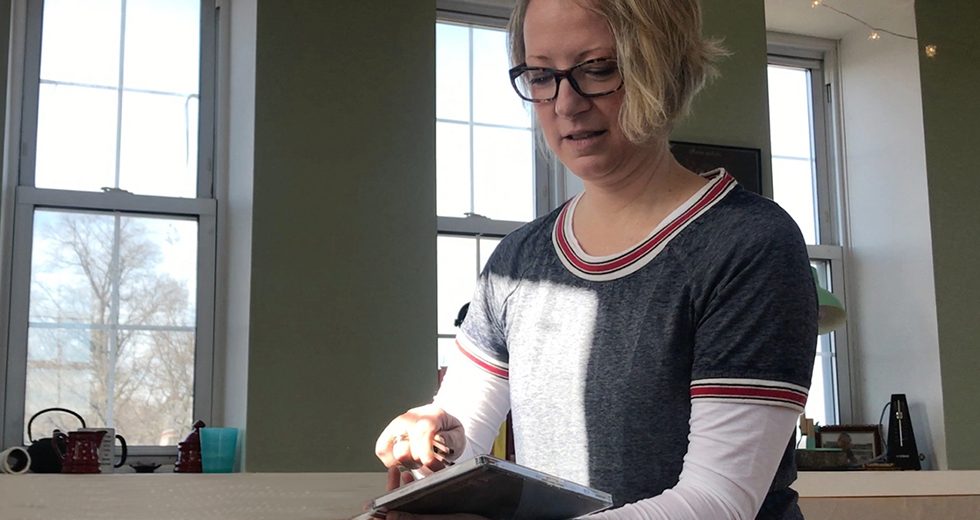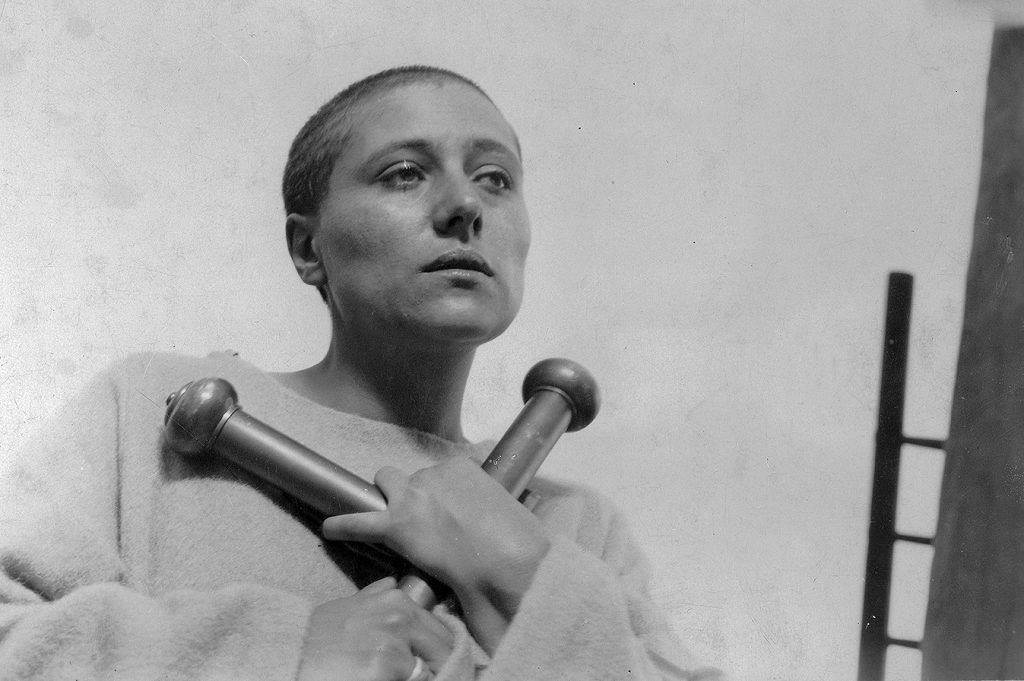
MusicNOW has presented some ambitious concerts during its 20-year history. The esteemed Arditti Quartet kicked off the CSO’s contemporary chamber series in December 1998 with music of Charles Ives, Elliott Carter and Conlon Nancarrow. In 2002, composer Pierre Boulez conducted one of his own works channeled through eight loudspeakers surrounding the audience in Orchestra Hall. MusicNOW audiences have heard scores of world premieres and works new to Chicago.
On April 2, however, the series presents its most ambitious project to date, according to the CSO’s Mead composers-in-residence, Elizabeth Ogonek and Samuel Adams. The third concert in MusicNOW’s 20th anniversary season will feature a world premiere, Savior, an evening-length piece by Chicago-area native Amy Beth Kirsten, inspired by the life of Joan of Arc. Described as a “vocal and instrumental theater work,” it will include three singers from HOWL, Kirsten’s vocal theatre ensemble. Chicago actor Sandy Smillie, whose credits range from the movie “The Dark Knight” to the TV series “Chicago Fire,” will be heard on pre-recorded tape as The Chronicler, providing commentary as the action unfolds.
Outfitted in an elaborate mask, virtuoso flutist Tim Munro may roam the stage while playing his instrument. CSO cellist Katinka Kleijn and principal percussionist Cynthia Yeh complete the ensemble. Approximately 65 minutes long, the piece has 11 scenes and no intermission. Savior is Kirsten’s latest work exploiting the ways that classical musicians can become highly theatrical performers. The New York Times has described her work as “dark, wild and engrossing … wondrously eclectic.”

Carl Theodor Dreyer’s silent “The Passion of Joan of Arc” (1928), with Falconetti in the title role, inspired Savior by composer Amy Beth Kirsten. MusicNOW will present the world premiere of Savior on April 2 at the Harris Theater.
Now based in New Haven, Conn., Kirsten moved with her family between the suburbs of Chicago and Kansas City while growing up. Supporting herself with assorted day jobs, she spent 10 years as a pop singer-songwriter in Chicago before she decided to study music composition seriously. In 2002, she began graduate studies at Roosevelt University and earned a doctorate in music from the Peabody Institute in Baltimore.
“Before I got into the program [at Roosevelt], I had this sort of secret desire to learn how to make really cool arrangements of all these pop songs I had been writing,” Kirsten said. “I wanted to learn about orchestral instruments and make some really intricate arrangements.” She also had a taste of theater, working occasionally as a sound designer for off-Loop theater companies.
A 20th-century music history course and a performance by the International Contemporary Ensemble caused a radical shift in her career. She saw ICE, a fiercely innovative chamber group, perform two works by living composers: George Crumb’s Song of the Whale and Peter Maxwell Davies’ Eight Songs for a Mad King. Claire Chase, the solo flutist, sometimes moved around the stage as she played. The musicians wore masks in the Crumb piece and Davies’ Eight Songs incorporated theatrical elements.
“All I knew about classical music at that point was playing piano starting in sixth grade,” Kirsten said. “I didn’t really understand that composers were still living and working. When I saw what could be done with classical music, it was a huge transformation, a shift in thinking for me. I did a sharp turn. I moved away from pop music.
“I love the idea that musical performance is happening always within the artifice of the theater,” she said. “When you enter a concert hall, you are taken into another world. It’s not reality. To me, it’s very interesting to see how the two worlds [music and theater] can connect and influence each other. And to do it in a way so that theater isn’t something that’s applied to a piece that’s already written. I love developing the music and the movement for a piece simultaneously. It is so inspiring when the theatrical elements become part of the musical language itself.”
Kirsten’s husband, composer Christopher Theofanidis, suggested she write a work about Joan of Arc. “Joan has been in the back of my mind for several years,” Kirsten said. “My husband and I went through a phase about five years ago when we were watching old films. We came across Carl Dreyer’s silent movie, ‘The Passion of Joan of Arc’ from 1928, which was so iconic. My husband sometimes drops little hints, and he said to me, ‘You should write something about Joan.’ And I said, ‘You’re right! I should write something about Joan.’ He knows me very well.”
Kirsten teaches composition at Longy School of Music at Bard College, and her work has been performed by leading groups such as American Composers Orchestra and the New World Symphony. In 2014-15, the Chicago-based ensemble eighth blackbird commissioned a new piece from Kirsten, Colombine’s Paradise Theatre, which was inspired by 17th century Italian commedia dell’arte. Eighth blackbird performed it at sold-out concerts at Chicago’s Museum of Contemporary Art and in New York.
Kirsten will discuss Savior with Samuel Adams and Elizabeth Ogonek before the performance. The talk, at 6 p.m. in the Harris Theater’s Lobby Level I, is free and open to all ticket holders. Savior was commissioned by the Virginia B. Toulmin Foundation for MusicNOW.
Wynne Delacoma, classical music critic for the Chicago Sun-Times from 1991 to 2006, is a Chicago-based arts journalist and lecturer.
VIDEO: Amy Beth Kirsten discusses the roots of Savior during an interview conducted at her New Haven, Conn., studio. Video captured and edited by Samantha London.